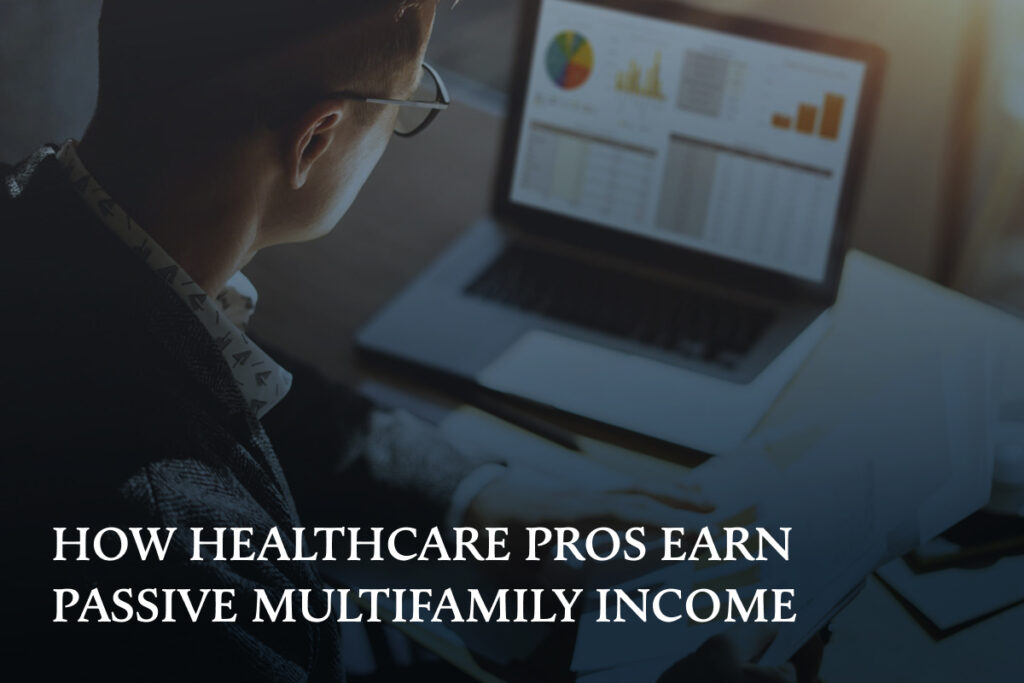As a healthcare professional, your time and energy are your most valuable resources. After long shifts, patient care, and administrative responsibilities, the last thing you want is another job managing tenants or fixing leaky faucets. Yet, many medical professionals still want to grow their wealth and diversify their investments beyond stocks and bonds.
This is where multifamily real estate comes in—especially in a passive capacity. But what does “passive” actually mean, and how can you benefit from real estate without taking on another job? Let’s break it down.
1. Passive Means No Day-to-Day Landlord Duties
When most people think of real estate, they imagine middle-of-the-night calls about broken water heaters or chasing tenants for rent. Passive multifamily investing is different.
Through syndications or real estate partnerships, you contribute capital while professional operators and property managers handle:
- Leasing and rent collection
- Maintenance and repairs
- Tenant communications and turnovers
- Financial reporting and compliance
- Your role is that of an investor—not a landlord.
2. Your Money Works While You Work
Healthcare professionals already work some of the most demanding schedules in the workforce. Passive real estate investing allows your money to generate monthly or quarterly cash flow without your daily involvement.
Apartment communities produce rental income from dozens—or even hundreds—of tenants, and that income is distributed to investors. Over time, as the property appreciates and debt is paid down, your investment can also benefit from equity growth—all while you focus on your patients, not property problems.
3. Professional Teams Maximize Efficiency
The “passive” in passive investing comes from leveraging expertise. A typical multifamily investment team includes:
- Acquisition specialists who find the right property in a growing market
- Property managers who handle all tenant and operational needs
- Asset managers who ensure the property is meeting financial targets
By partnering with proven professionals, you can enjoy the financial upside of real estate without learning the business from scratch or sacrificing your time.
4. True Passive Income Supports Life Outside the Hospital
Ultimately, the reason healthcare professionals pursue passive multifamily investing is simple: freedom. By building recurring cash flow and long-term equity, you can create options to:
- Reduce clinical hours
- Take extended time off
- Fund future goals without financial stress
Passive real estate income works in the background, supporting a lifestyle not solely dependent on your W-2 income.
Final Thought: Passive Doesn’t Mean Disengaged
While multifamily real estate can be truly passive from a workload perspective, it still requires smart decisions upfront. Partnering with experienced operators, performing due diligence, and understanding the investment structure are key. Once those pieces are in place, your role can remain hands-off, allowing you to enjoy the wealth-building power of real estate without the headaches of direct management.
If you’re a healthcare professional looking to grow your wealth without adding another job to your plate, passive multifamily investing may be the bridge between your current income and future financial freedom.


